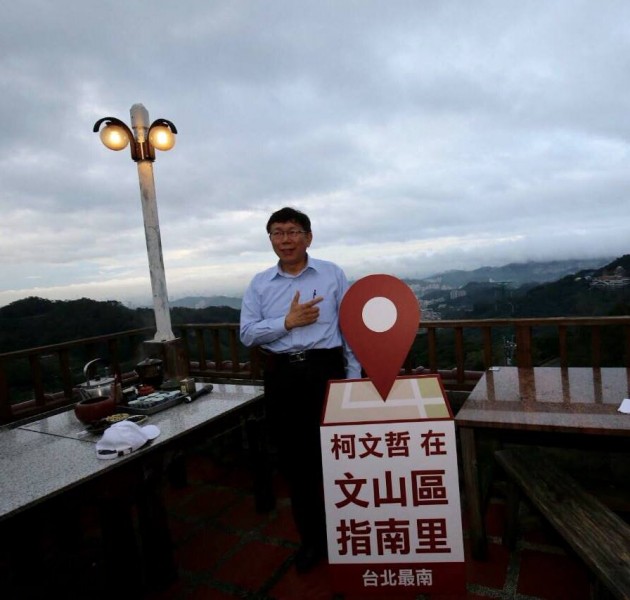Independent candidate Ko Wen-je came away with a victory in the Taipei City mayor's race, and he says he has social media to thank.
Taiwan went to the polls on November 29 to vote for county governors and city and township mayors. The country's political landscape favors the two-party system, in which the ruling party is mainly a competition between Kuomintang (KMT) and Democratic Progressive Party (DPP). But Ko, a medical doctor by profession, managed to win with 853,983 votes or 57.16 percent of the vote, a landslide compared to the 40.82 percent garnered by his major opposing candidate, Sean Lien, who is backed up by the ruling Kuomintang.
Different from conventional political parties’ election campaigns, which tend to spend a huge amount of money on mainstream media advertisement, Ko relied mostly on social media to spread his message. He only bought TV airtime for one advertisement, and the rest were posted on social media platforms.
In addition, he vowed to implement ideas gathered by his campaign team from social media users as part of Taipei City policy if he won the election. Many have credited his outreach on social media with bringing out younger voters in droves.
In Ko’s acceptance speech, he attributed his victory to the power of social media:
我來自庶民,未來進入台北市政府會繼續傾聽庶民的聲音;鄉民力量的展現見證了網路世代的強大,無論是線上捐款、理念傳播、活動募集,這都是一場網路主導的選戰。從白衫軍到太陽花學運,公民運動造就了台灣新政治的來臨。
I am an ordinary citizen, and I will continue to listen to the voices of the common people upon starting to serve in the Taipei City government. The power of grassroots was parallel to the rise of the Internet generation. The entire election campaign was let by the Internet — online donation, the promotion of ideals, and mobilization to events. From the White T-Shirt Army to the Sunflower Movement, civic movements have created a new approach to Taiwan politics.
The White T-shirt Army is a popular movement calling for a military investigation of the death of Hung Chung-chiu, a young soldier who died suddenly on July 4, 2013 while detained during his conscription service. The Sunflower Movement is a mobilization against the non-transparent negotiations of a cross-strait free trade agreement with China. Both movements rely heavily on social media.
Ko's campaign was geared toward Internet culture and guided by principles and values such as crowdsourcing wisdom, transparency and openness. For example, his campaign website put up an announcement on November 11, two weeks before the election, that they would stop receiving campaign donations once it reached enough to pay off all necessary campaign expenses.
A few days after the election, his campaign team published, in its entirety, spreadsheets of every single cent spent on the campaign. One of the items started a slew of online commentary — NT$80 (approximately US$3) spent on garlic purchased on September 5.
Facebook user Chang Shiu-hwen joked about the garlic expense item:
大蒜應該是菜市場阿嬤送的,最終買下?是這樣嗎?
The garlic must have been given by some old lady from the farmer’s market, and in the end, [they] ended up paying for it? Is this the case?
Another example involves Ko's wife. Pegger Ko was very active supporting her husband on her public Facebook page, which has more than 200,000 followers.
In last week's local election, which was coined the 9-in-1 election, the public voted for county governors, city and township mayors, city councilors, aboriginal village leaders and heads of smaller towns, providing a preview of what the next presidential election to be held in 2016 might look like. The ruling Kuomingtang, which previously held 14 of 22 municipalities and counties, lost more than half of its territories and only managed to keep six municipalities and counties, while the opposition Democratic Progressive Party gained executive control of 13 municipalities and counties.
Ko's success in winning the capital city's election as an independent candidate will have a significant impact in shaping voter behavior and the country's political culture, some analysts have suggested.







